20 November 2024, Kabul, Afghanistan – Since the introduction of the basic emergency care (BEC) course in Afghanistan in December 2021, WHO has provided 18 rounds of BEC training to a total of 800 first contact health workers, including 333 women, who care for patients with acute illness or injury.
By adopting a systematic approach to the initial assessment and management of time-sensitive conditions such as injuries, infections, noncommunicable diseases, including mental health conditions, and acute complications of pregnancy, BEC early intervention saves lives.
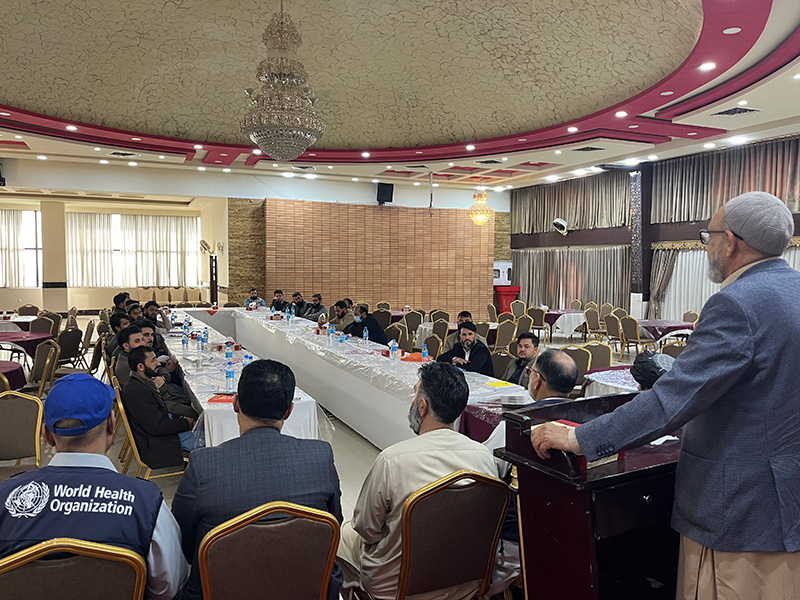
The BEC course involves 5 days of in-person training relevant to many health care workers, including midwives, ambulance providers and doctors in a range of settings, including humanitarian crises.
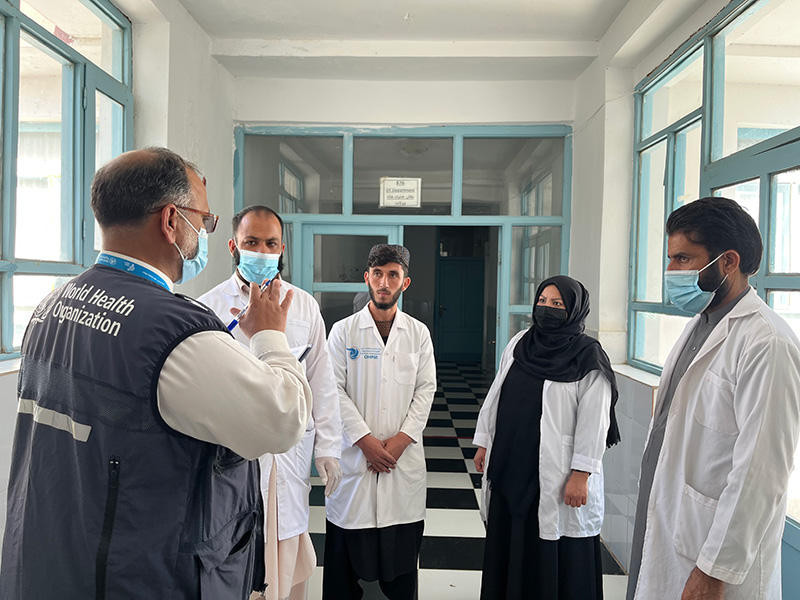
Between 2 and 8 November, WHO trained 48 first contact health workers, including 24 women, from Afghanistan’s western region in Herat province. Trainees included doctors, gynaecologists, nurses and midwives from the provinces of Badghis, Farah, Ghor and Herat.
In the western region provinces of Badghis, Farah, Ghor and Herat we support 19 trauma care units. Support includes providing medical kits, supplies and training for medical staff in emergency rooms and operating theatres. As the Emergencies Programme Focal Point in the western region, I make sure that frontline health workers are equipped with the skills necessary to provide lifesaving health care in first contact situations.
“In the western region provinces of Badghis, Farah, Ghor and Herat we support 19 trauma care units. Support includes providing medical kits, supplies and training for medical staff in emergency rooms and operating theatres. As the Emergencies Programme Focal Point in the western region, I make sure that frontline health workers are equipped with the skills necessary to provide lifesaving health care in first contact situations.”
- WHO Emergencies Programme Focal Point for the western region Dr Anasulhaq Rahimi
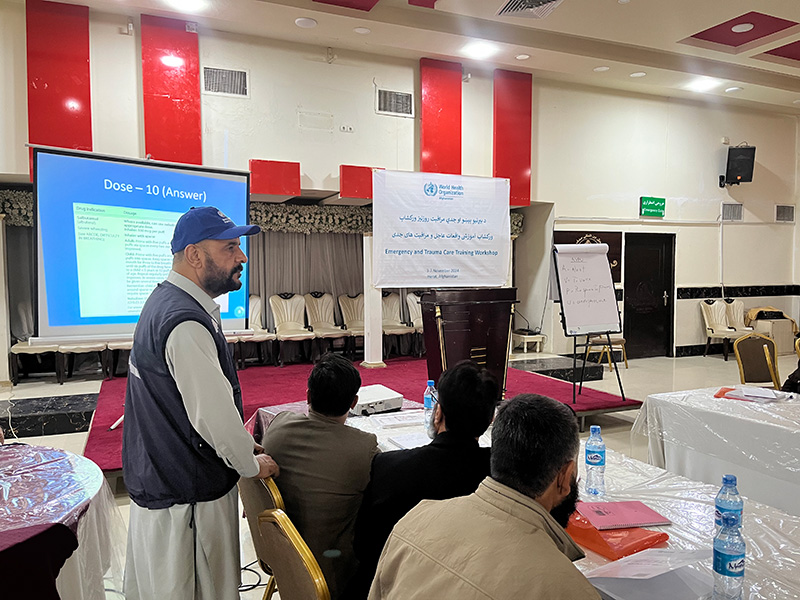
A systematic approach to emergency conditions can save lives even when specialised care is not available.
“Our main objective is to enhance the capacity of first contact health workers in Afghanistan to provide quality care using a standardized approach to better address the recognition and initial management of emergency conditions. Our expectation is that the BEC trainings will significantly improve survival rates and reduce morbidity.”
- Trauma care support officer Dr Ismail Abid
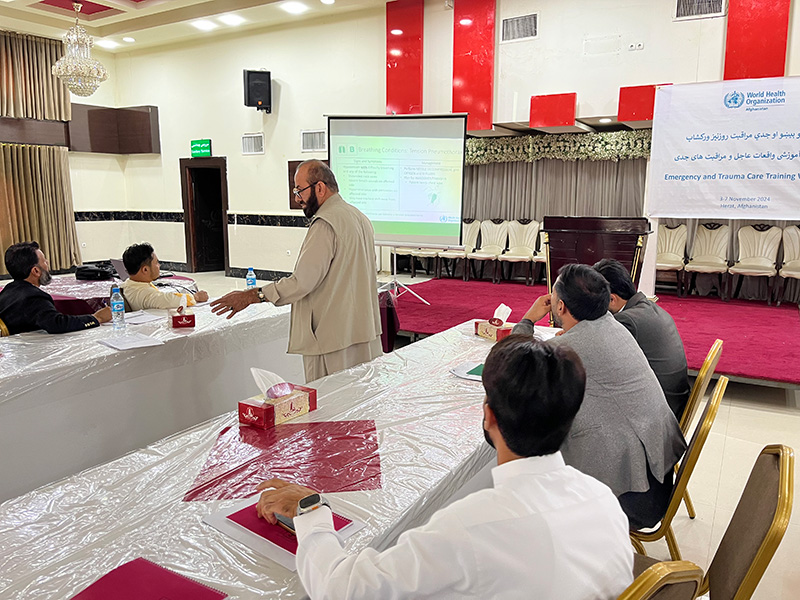
The BEC course uses a practical and systematic approach – according to the presenting condition of the patient – covering, among other aspects, initial assessment, trauma, difficulty in breathing, shock and altered mental status.
“We deliver the training in 2 parts. The first involves presentations and discussions on initial assessment, trauma primary and secondary surveys, difficulty in breathing, shock, altered mental status and transfer and medication. The second includes practical work and simulation exercises using mannequins. Trainees practice essential BEC skills under the supervision of experienced trainers and experts.”
- BEC trainer Dr Ashraf Majid
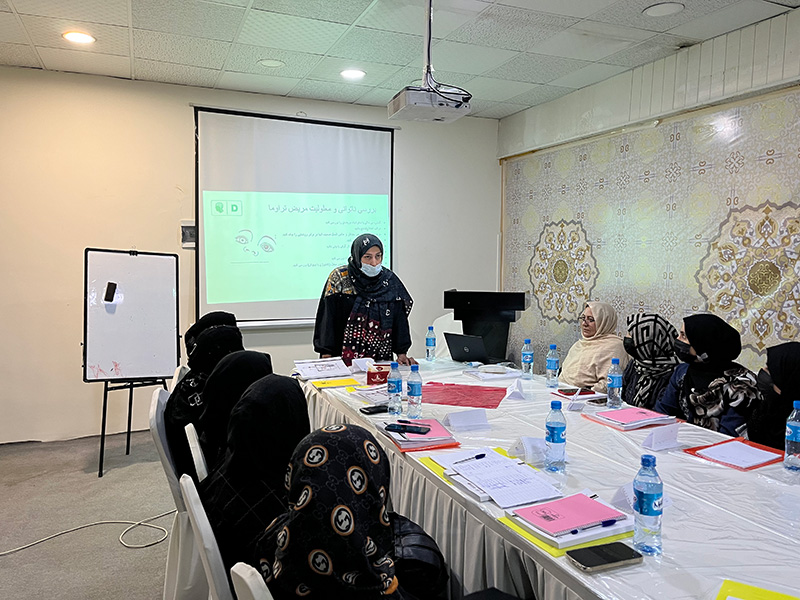
BEC skills help first contact health care providers respond to patient needs professionally and minimize the possibility of errors.
“These skills help health workers understand and respond to patients' needs, and in critical situations help responders deal with situations more effectively, maintain a calm environment and reduce stress for patients and families.
“In emergency situations clients can feel intense fear and anxiety. Immediate, calm and empathetic care from health professionals can provide comfort and reassurance to clients. Medical errors are also more likely due to time pressure and stressful situations. With BEC skills these errors can be minimized.”
- BEC trainer Dr Razia Razae
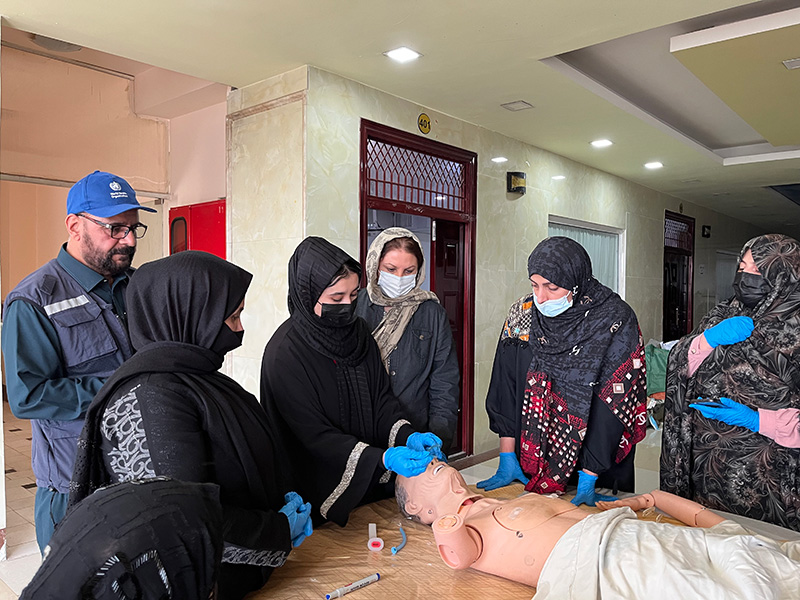
It is crucial for health facilities and the wider community to have skilled female first contact health workers to deal with emergencies, particularly those involving women.
“In emergencies involving female patients, especially obstetric emergencies, female health workers are better positioned to provide first aid while maintaining patient confidence. Female clients feel more comfortable receiving treatment from someone of the same gender. In emergency situations the most important thing is to provide reassurance, maintain calm and reduce patient anxiety.
“The training gave me the confidence to effectively provide first aid to patients in the health centre where I work. It has helped me eliminate medical errors that could endanger the patient's life, quickly assess the patient, make appropriate decisions and support my colleagues in emergency situations.”
- Gynaecologist and BEC training participant Dr Nilofar Zaka
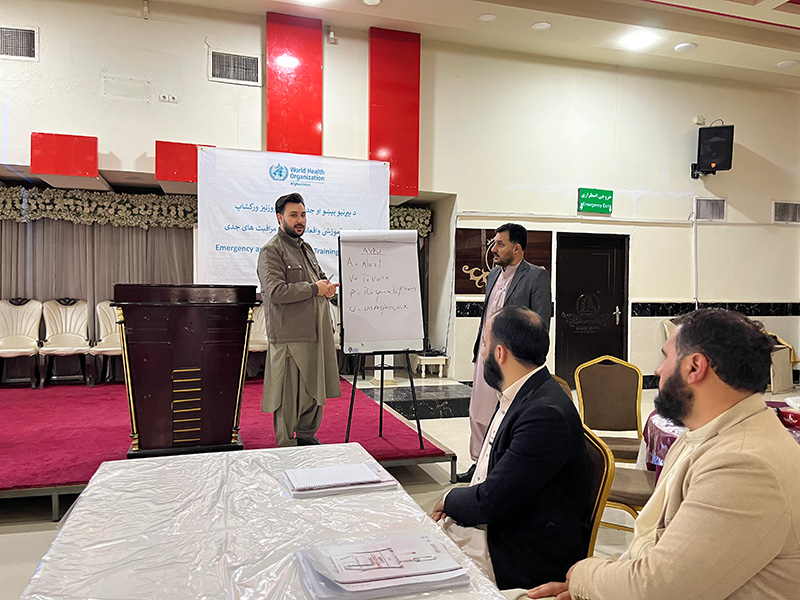
Skilled first contact health care workers save lives in emergency settings, reducing morbidity and mortality rates.
“Since most traumatic and non-traumatic emergencies are referred to the emergency departments of health centres where vital initial measures are taken in emergency rooms, health workers in these settings must have the skills to protect patients’ lives.
“The training will have very practical impacts on our work, most importantly in terms of how to protect ourselves and prevent further harm to our patients.”
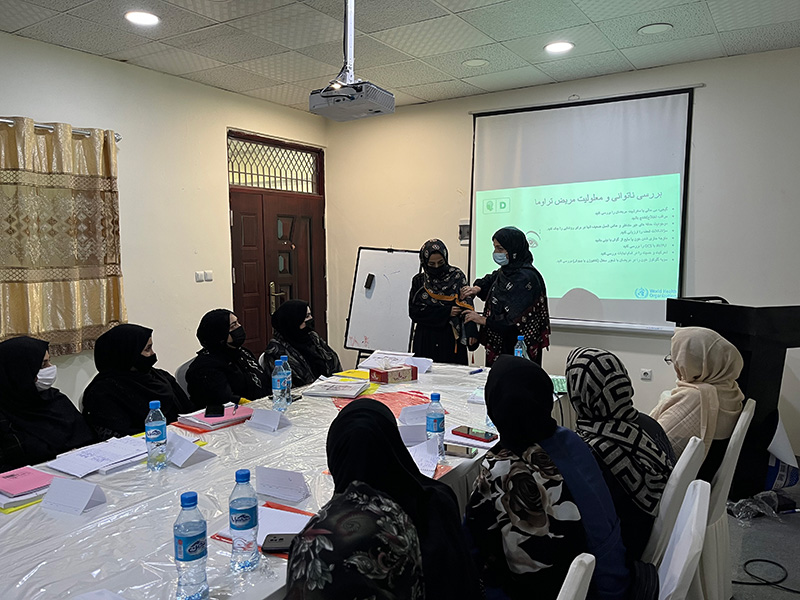
- BEC training participant from Ghoryan district hospital Dr Omid Khalili
“The training was very useful for me. Our department is planning to establish an intensive care unit for pediatric patients and my colleagues told me that I will be a great resource for the unit. The BEC skills I gained during the training will help me a lot in initial management of neurological emergencies.”
- Nurse at the neurosurgery department of Herat regional hospital Hasiba Zahedi
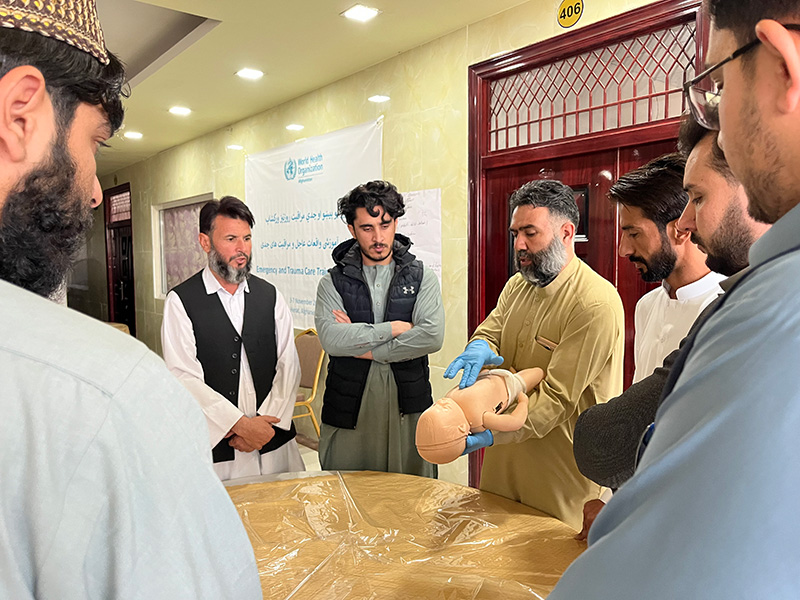
In addition to building national capacity, strengthening service delivery, developing contingency and mass casualty management plans and conducting simulation exercises, WHO directly supports 177 trauma care units and 65 blood banks across 34 provinces in Afghanistan.


